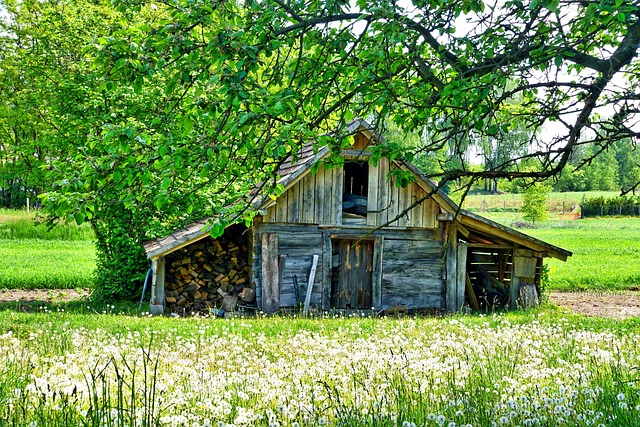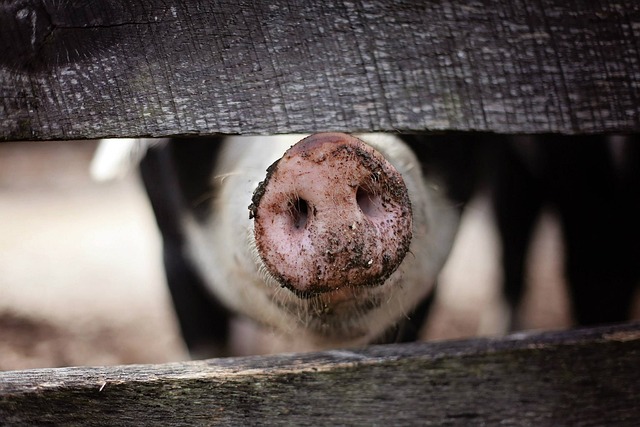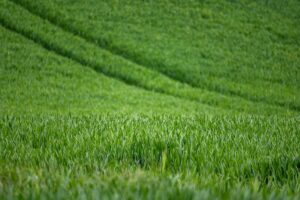Farm sheds in Shepparton play a vital role in advancing the agricultural sector by offering customizable solutions for space optimization and operational efficiency. These structures are tailored to the needs of local farmers, providing secure storage for machinery and facilities for animal husbandry, thus protecting equipment from environmental damage and reducing maintenance costs. The design of these sheds includes energy-efficient features that lower operational expenses and support sustainable practices. Their durability ensures they can withstand Shepparton's challenging climate, making them a worthwhile long-term investment. Customizable options such as mezzanine floors and specialized racking systems help farms adapt to changing agricultural demands. Moreover, the strategic organization within these sheds maximizes space utilization and promotes efficient access to equipment. In Shepparton, farm sheds are not just storage facilities but dynamic hubs of productivity, employing vertical space utilization and organized inventory management to meet the sector's fluctuating needs. Farmers in the region are embracing eco-friendly practices by integrating renewable energy sources like solar panels and rainwater harvesting systems into their farm shed operations, demonstrating a commitment to sustainable agriculture and environmental stewardship that ensures the protection of natural resources for future generations.
In Shepparton’s vibrant agricultural heartland, the protection and organization of farm equipment are paramount. This article delves into the critical role of custom farm sheds in enhancing efficiency within the region’s farming sector. Explore how selecting the right durable materials can safeguard your investments from the area’s diverse climatic conditions. We also navigate the importance of optimizing space and organization within these structures for better storage solutions. Additionally, we consider the environmental footprint of farm sheds, offering insights into sustainability in Shepparton’s farming practices. Farm Sheds remain a cornerstone of agricultural maintenance, shaping the industry’s future while respecting the land that sustains it.
- Maximizing Efficiency with Custom Farm Sheds in Shepparton's Agricultural Sector
- The Role of Durable Materials in Protecting Your Farm Equipment from Shepparton's Climate
- Navigating Space and Organization within Shepparton's Farm Sheds for Optimal Storage Solutions
- The Environmental Impact of Farm Sheds: Sustainability Considerations Near Shepparton
Maximizing Efficiency with Custom Farm Sheds in Shepparton's Agricultural Sector

In Shepparton’s expansive agricultural sector, custom farm sheds play a pivotal role in optimizing space and enhancing operational efficiency. These versatile structures are tailored to meet the unique needs of local farms, from storing large machinery to providing sheltered areas for animal husbandry. By investing in farm sheds designed with precision and functionality in mind, Shepparton’s farmers can protect their equipment from the elements, ensuring longevity and reducing maintenance costs. The strategic placement of these sheds on farms not only streamlines workflows but also allows for better organization, making it easier to access tools and machinery when needed. The customizable nature of farm sheds means that they can be equipped with features such as mezzanine floors for additional storage space or outfitted with specialized racking systems for different types of agricultural equipment. This adaptability ensures that as the farming industry evolves, the infrastructure remains relevant and effective.
Moreover, the integration of energy-efficient designs and materials in custom farm sheds further contributes to efficiency by reducing energy consumption and operational costs. These sheds can be constructed with insulation and lighting solutions that minimize power usage while maximizing the safety and comfort of both equipment and workers. The durability of these structures, built to withstand the harsh conditions often encountered in Shepparton’s climate, ensures a long-term investment that protects one of the region’s most valuable assets: its agricultural output. As a result, the adoption of custom farm sheds is not just a response to immediate needs but a strategic move towards sustainable growth and enhanced productivity within Shepparton’s agricultural landscape.
The Role of Durable Materials in Protecting Your Farm Equipment from Shepparton's Climate

In the region surrounding Shepparton, Victoria, the protection and maintenance of farm equipment are paramount due to its exposure to diverse climatic conditions, ranging from harsh summers to unpredictable rainfall. To safeguard these critical assets, farm shed solutions constructed with durable materials are essential. These structures not only provide a secure storage environment but also shield machinery from the sun’s intense UV rays, which can cause rapid degradation over time. The use of high-quality, weather-resistant materials like galvanized steel and aluminum ensures that sheds stand up to the strong winds and heavy rain that often accompany Shepparton’s weather patterns. Additionally, incorporating features such as proper ventilation and insulation within farm sheds can further protect equipment from extreme temperatures, extending their lifespan and maintaining optimal operational performance. By investing in robust farm shed designs with durable materials tailored to Shepparton’s climate, farmers can significantly enhance the longevity and functionality of their valuable equipment. This proactive approach not only saves on costly repairs but also contributes to the overall efficiency and profitability of agricultural operations in the region.
Navigating Space and Organization within Shepparton's Farm Sheds for Optimal Storage Solutions

In Shepparton, the expansive farm sheds serve as critical storage facilities for a wide array of agricultural equipment. Efficiently navigating space within these structures is paramount for optimal organization and functionality. The layout of farm sheds often necessitates a strategic approach to storage solutions, with tall racking systems maximizing vertical space and allowing for the accommodation of larger machinery when not in use. Organizing equipment by type, frequency of use, and seasonal requirements can greatly enhance the accessibility and maintenance of these essential tools. By implementing a well-thought-out organization system, farmers can ensure that their farm sheds are not just storage spaces but hubs of productivity and efficiency.
The key to effective farm shed organization lies in a combination of clear labeling, intelligent placement, and regular inventory management. Utilizing the full height of the shed with suspended shelving or mezzanine levels can open up floor space for larger items while keeping smaller parts and tools within easy reach. Additionally, keeping aisles clear and implementing a first-in, first-out (FIFO) system for inventory rotation helps maintain an organized and functional environment that aligns with the dynamic nature of agricultural operations in Shepparton. With these considerations, farm sheds can become highly efficient storage solutions that support the ongoing success of the region’s farming community.
The Environmental Impact of Farm Sheds: Sustainability Considerations Near Shepparton

In the region surrounding Shepparton, the construction and maintenance of farm sheds play a significant role in the agricultural landscape, influencing both operational efficiency and environmental sustainability. The environmental impact of these structures is multifaceted, encompassing resource use, energy consumption, and waste management. Modern farm sheds are increasingly designed with sustainable practices in mind, utilizing materials that reduce carbon footprints and employing innovative designs to optimize natural lighting and ventilation, thus lessening the reliance on artificial energy sources. The orientation and insulation properties of these sheds are carefully considered to minimize heating and cooling requirements, contributing to energy conservation. Additionally, responsible waste disposal from these sheeds is crucial in preventing soil and water contamination, ensuring that runoff is managed effectively to protect local biodiversity.
Farmers near Shepparton are now adopting sustainable farm shed practices that align with broader environmental stewardship goals. These practices include the use of renewable energy sources, such as solar panels, to power equipment and lighting within sheds, reducing greenhouse gas emissions. Rainwater harvesting systems are also being integrated into farm shed designs to conserve water resources. The adoption of these sustainability measures not only mitigates the environmental impact but also positions local farms to adapt to changing climate patterns, safeguarding agricultural productivity for future generations. The integration of environmentally conscious farm shed design and operation is a testament to the commitment of Shepparton’s farming community to sustainable agriculture.
In conclusion, Shepparton’s agricultural industry thrives with the integration of custom farm sheds designed for maximum efficiency and protection. Utilizing durable materials tailored to withstand Shepparton’s unique climate ensures the longevity and safety of valuable farm equipment. Meticulous space planning within these structures optimizes storage solutions, allowing for seamless organization and accessibility. Additionally, the environmental footprint of these farm sheds is a critical factor, with sustainability practices becoming increasingly important in their construction and operation. As Shepparton continues to evolve, so too does its approach to agricultural storage, balancing productivity and ecological responsibility effectively.
